Israel withdraws almost all troops from southern Gaza
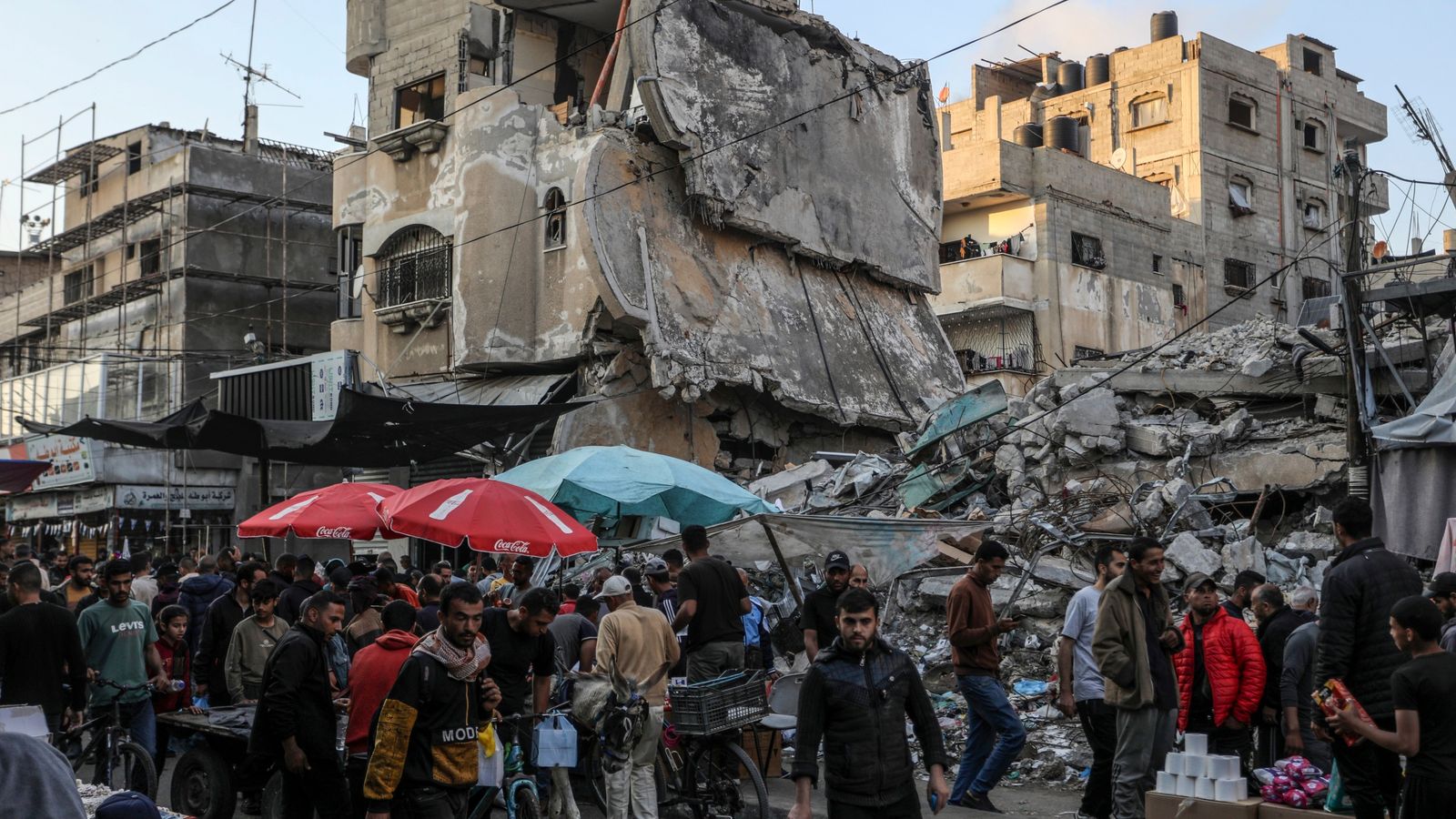

Israel has withdrawn almost all of its troops from southern Gaza.
Only one brigade remains in Khan Younis and is tasked with securing the Netzarim corridor that divides the Gaza Strip, according to The Times of Israel.
The move comes six months to the day since Hamas launched the October 7 attacks on Israel, which left more than 1,100 people dead.
It was the trigger for Israel’s ongoing military action in Gaza, which has resulted in the deaths of more than 33,000 Palestinians, according to the territory’s Hamas-run health authority.
War latest: Israel explains why troops withdrawn from southern Gaza
The withdrawal of troops is linked to ongoing negotiations with Hamas over Israeli hostages and Prime Minister Benjamin Netanyahu is “desperate” for a ceasefire deal, a senior source in the Israeli government told Sky’s Middle East correspondent Alistair Bunkall.
The killings of seven aid workers in Gaza in an Israeli airstrike “changed everything”, the source added.
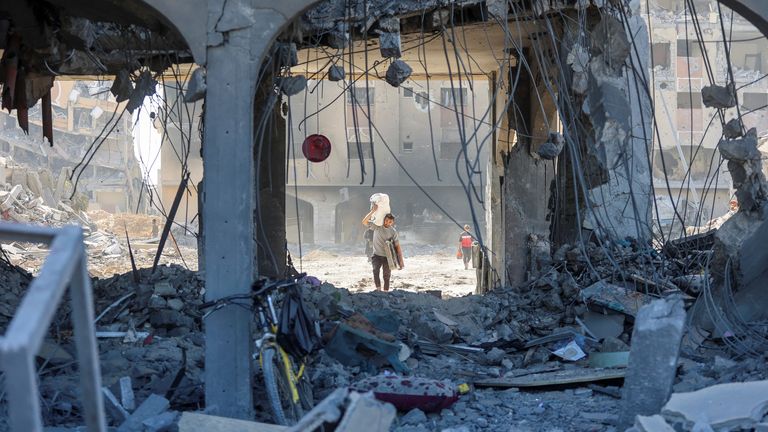
Israel’s defence minister Yoav Gallant said troops had been pulled out of Gaza on Sunday to prepare for future missions, including in the enclave’s southern city of Rafah.
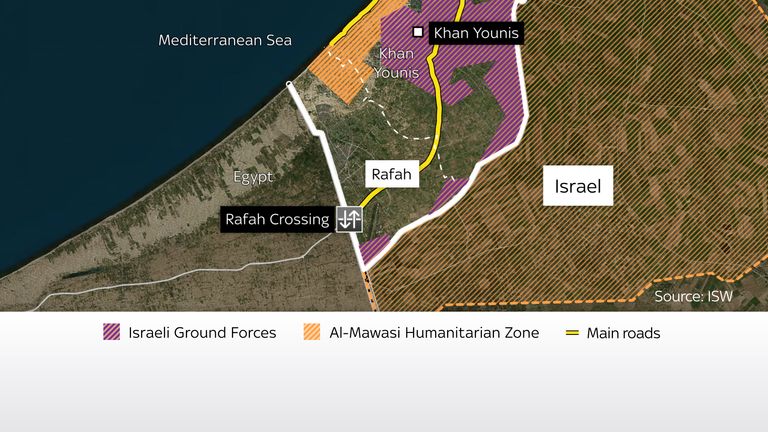
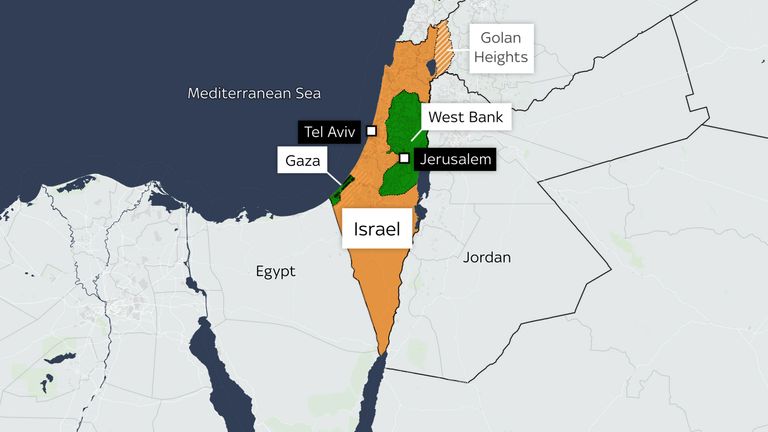
“We saw examples of such missions in the Shifa operation, and also of their coming mission in the Rafah area,” Mr Gallant said at a meeting with military officials, according to a statement from his office.
Advertisement
The withdrawal of Israeli forces is a significant moment in this war, but it might be too early to assess how significant.
Officially, it is to give troops time to recuperate after months of heavy fighting, although that doesn’t explain why they haven’t just been replaced.
Israeli officials are also saying operations in Khan Younis are over and there is nothing left to do.
That’s not entirely true, as some rockets were fired out of the city towards Israel hours after the soldiers left.
Although some forces will remain, predominantly patrolling the east-west corridor that divides the strip, withdrawing from Khan Younis concedes ground and surely makes a large-scale land invasion of Rafah unlikely, at least in the short term.
Please use Chrome browser for a more accessible video player
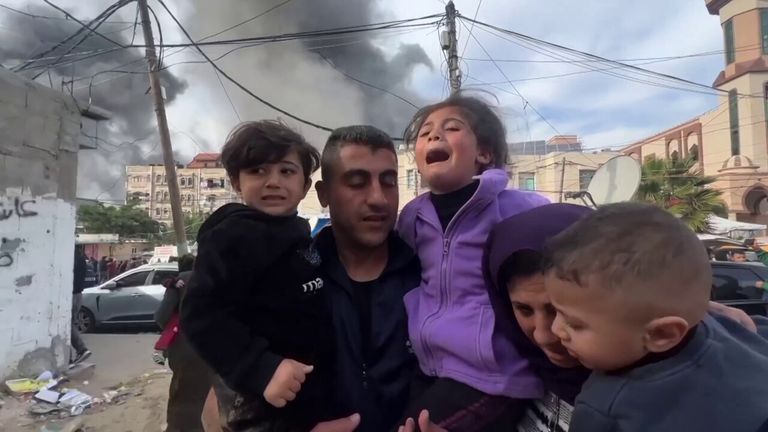
7:23
Six months of war in Gaza
Israel had planned a ground invasion of the southern city of Rafah, claiming it is a hive of Hamas’s remaining strongholds. More than half of Gaza’s 2.3 million population are taking refuge in the city.
Following the withdrawal of the troops, Israeli government spokesperson Avi Hyman told Sky News Mr Netanyahu would “absolutely” go ahead with a ground invasion of Rafah.
“If we don’t go ahead with Rafah, we lose the war,” he said.
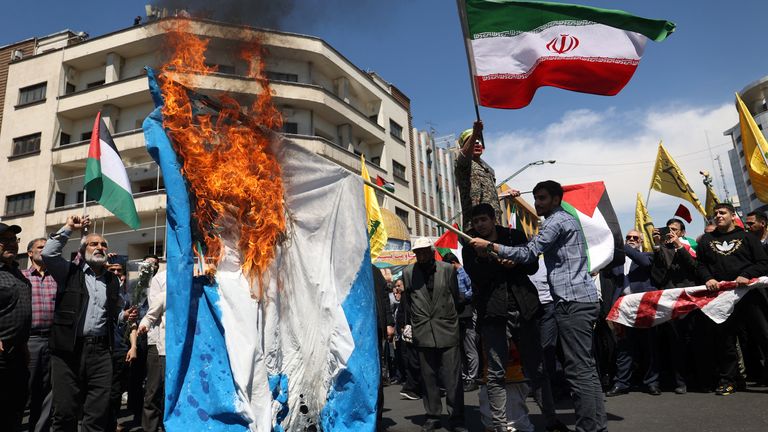
Israeli embassies ‘unsafe’
Meanwhile, an Iranian official says no Israeli embassy is safe after a suspected Israeli strike on the Iran consulate in Damascus.
Twenty-eight Israeli embassies around the world temporarily closed on Friday due to fears of reprisal from Iran, the official said.
Read more:
US on high alert over threat of Iranian retaliation
Royal Navy ship to be deployed in Gaza aid effort
Seven members of Iran’s Revolutionary Guard were killed in the 1 April attack, with Iran vowing retaliation.
US officials said on Friday they were on high alert about the possibility of a significant Iranian strike on targets inside Israel.